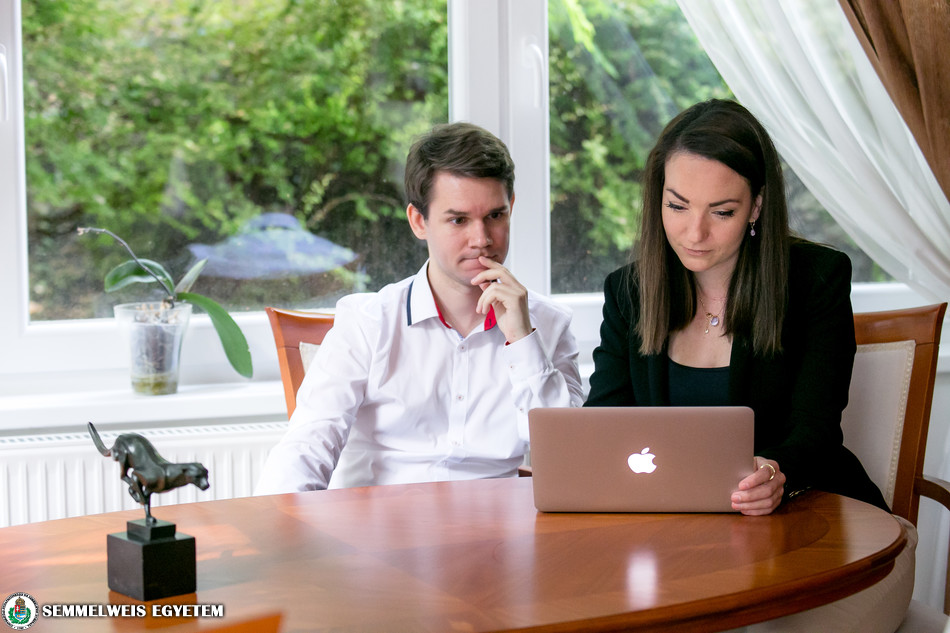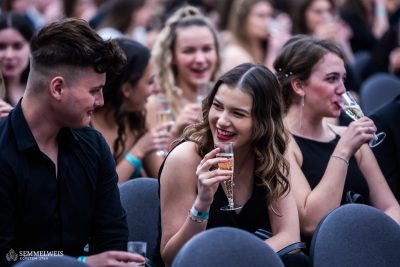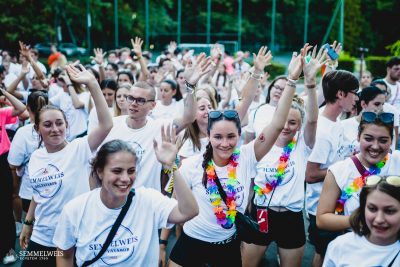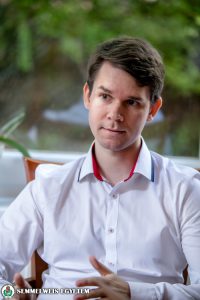 Walter Richard Schwertner, graduate student of the Faculty of Medicine, successful presenter of the Scientific Students’ Association and National Scientific Students’ Association, researches the instrumental treatment of chronic heart failure, cardiac resynchronization therapy (CRT). He has also published a co-authored publication in the form of meta-analysis and review and is currently working on his first article. His supervisor and mentor is Dr. Annamária Kosztin, cardiology specialist at the Heart and Vascular Centre. Both the mentor and the student emphasize: the Scientific Students’ Association programme, besides extending the student’s knowledge in a definite direction, puts the clinic in a completely different perspective.
Walter Richard Schwertner, graduate student of the Faculty of Medicine, successful presenter of the Scientific Students’ Association and National Scientific Students’ Association, researches the instrumental treatment of chronic heart failure, cardiac resynchronization therapy (CRT). He has also published a co-authored publication in the form of meta-analysis and review and is currently working on his first article. His supervisor and mentor is Dr. Annamária Kosztin, cardiology specialist at the Heart and Vascular Centre. Both the mentor and the student emphasize: the Scientific Students’ Association programme, besides extending the student’s knowledge in a definite direction, puts the clinic in a completely different perspective.
Walter has always wanted to deal with research. He has primarily been interested in clinical investigations, and he spent his previous summer practices at the Heart and Vascular Centre, where he committed himself to cardiology. Initially, he was involved in research on myocardial infarction, currently he is examining therapy responsiveness of heart failure patients who have undergone CRT implantation. He has developed an online database with his mentor, which is continuously extended with patients who have been implanted at the clinic so far. Having registered the data of approximately 2500 patients and using various state-of-art statistical analyses, they try to identify the patient population that responds optimally to CRT therapy. The joint work began in 2015, when they met within the framework of regular cardiology education, where Walter immediately exceeded with his interest and questions, recalls the mentor, adding that they soon found the common voice.
Walter believes that a lot of persistence and commitment is necessary from the students’ part, as only after clinical work and university activities is it typically possible to plan and execute research, often including weekends.
In addition to his dedication to research and biostatistics, his lecturers’ ability has also improved greatly, and he had the opportunity to see how to process, write or publish scientific articles, Walter says about the benefits. He is now coordinating the work of his Scientific Students’ Association peers as part of a larger working group. He believes a good mentor is attentive and spares enough time for the students of Scientific Students’ Association, and is positive and supportive not only professionally, but also in his personality. Both the mentor and the student emphasized: it is important to not only have a conventional and formal relationship between mentors and mentorees, so they often organize free time programmes within the working group.
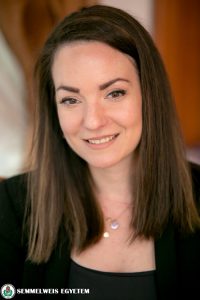 Dr. Annamária Kosztin has been participating in the mentoring program since 2015. To lead a talented student, who invests remarkable energy into scientific work, is always a great responsibility, she said. She referred to Dr. Béla Merkely, Rector of Semmelweis University and director of the clinic, as an exemplary figure who, first by creating a school and then by providing further advice, contributed to the formation of a productive Scientific Students’ Association pacemaker working group at the clinic. She also tries to convey to her mentorees the spirit she has acquired from him. According to Dr. Annamária Kosztin, it is important for students to start researching in the third, or at the latest in the fourth year. She believes that students can build their knowledge for their PhD studies during the university years if they broaden their knowledge in a definite direction during this time, but the acquired approach can also be significant in patient care. As Walter’s example shows, a few years after entering the programme, students can produce several publications, which may frame new messages for international literature. Doing research and clinical work at the same time is a great challenge, but the acquired approach can be taken on and shaped by the students, she said.
Dr. Annamária Kosztin has been participating in the mentoring program since 2015. To lead a talented student, who invests remarkable energy into scientific work, is always a great responsibility, she said. She referred to Dr. Béla Merkely, Rector of Semmelweis University and director of the clinic, as an exemplary figure who, first by creating a school and then by providing further advice, contributed to the formation of a productive Scientific Students’ Association pacemaker working group at the clinic. She also tries to convey to her mentorees the spirit she has acquired from him. According to Dr. Annamária Kosztin, it is important for students to start researching in the third, or at the latest in the fourth year. She believes that students can build their knowledge for their PhD studies during the university years if they broaden their knowledge in a definite direction during this time, but the acquired approach can also be significant in patient care. As Walter’s example shows, a few years after entering the programme, students can produce several publications, which may frame new messages for international literature. Doing research and clinical work at the same time is a great challenge, but the acquired approach can be taken on and shaped by the students, she said.
Walter considers his achievements in the Scientific Students’ Association to be a great success. So far two of his independent presentations and three of his joint presentations have been awarded, and he received second place at the National Scientific Students’ Association Conference. During the three years spent in the programme, he has improved a lot, but, as he said, he would like to further broaden his clinical perspective. He believes it is very important to be a specialist in one field, but it is also essential to have a broad perspective. Regarding his plans for the future, he said he would like to continue research, plans to obtain a PhD degree and imagines his future as a cardiology specialist in Hungary.
Bernadett Kiss-Bódi
Photo: Attila Kovács ̶ Semmelweis University
Translation: Diána Módos
